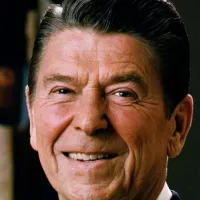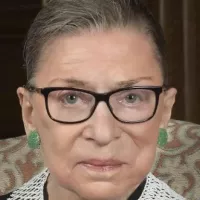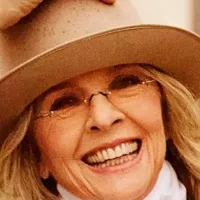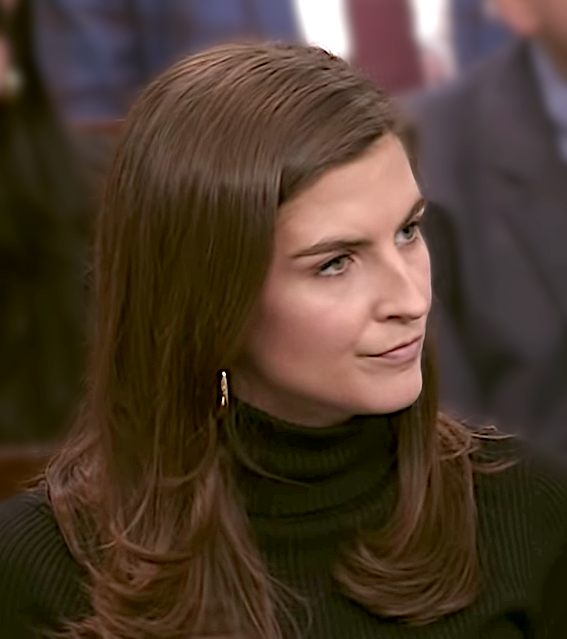Neil McGill Gorsuch is an Associate Justice of the Supreme Court of the United States. Nominated by President Donald Trump, he assumed office on April 10, 2017. Gorsuch is a prominent figure in the American legal system.
1964: Civil Rights Act of 1964
In 1964, the Civil Rights Act was passed which Neil Gorsuch would later interpret in Bostock v. Clayton County (2020) to include protection from employment discrimination due to sexual orientation and gender identity.
August 29, 1967: Neil Gorsuch Born
On August 29, 1967, Neil McGill Gorsuch was born. He is an American jurist who serves as an associate justice of the Supreme Court of the United States.
1968: Tribes in Trust with Texas
In 1968, the Native American Tribes of Texas were in a trust with Texas, which eventually led to the case Ysleta del Sur Pueblo v. Texas in 2022.
1981: Anne Burford Appointed EPA Administrator
In 1981, Neil Gorsuch's mother, Anne Burford, was appointed by President Ronald Reagan as the first woman to serve as administrator of the U.S. Environmental Protection Agency.
1983: Federal Civil Rights action
In the case A.M. v. Holmes, The child's family brought a federal § 1983 civil rights action against school officials and the school resource officer who made the arrest, arguing that it was a false arrest that violated the child's constitutional rights.
1984: Chevron U.S.A., Inc. v. Natural Resources Defense Council, Inc.
In Chevron U.S.A., Inc. v. Natural Resources Defense Council, Inc., 1984, the Supreme Court instructed courts to grant deference to federal agencies' interpretation of ambiguous laws and regulations.
1985: Graduated from Georgetown Preparatory School
In 1985, Neil Gorsuch graduated from Georgetown Preparatory School as student body president.
1986: Co-founded 'The Fed'
In 1986, while an undergraduate at Columbia University, Neil Gorsuch co-founded the satirical student publication, 'The Fed'.
1987: Tribes Granted Federal Trust
In 1987, the Native American Tribes of Texas were granted a federal trust, leading to a statute governing the tribes' subjugation to Texas's gambling restrictions and later the case Ysleta del Sur Pueblo v. Texas.
1988: Graduated from Columbia University
In 1988, Neil Gorsuch graduated from Columbia University with a Bachelor of Arts degree, cum laude, in history and politics.
1991: Clerked for Judge David B. Sentelle
From 1991 to 1992, Neil Gorsuch served as a law clerk for Judge David B. Sentelle of the United States Court of Appeals for the D.C. Circuit.
1991: Graduated from Harvard Law School
In 1991, Neil Gorsuch graduated from Harvard Law School with a Juris Doctor, cum laude. Barack Obama was among his classmates.
1991: Youngest Nominee
When nominated to the Supreme Court on January 31, 2017, Gorsuch was 49 years old, making him the youngest nominee to the Supreme Court since Clarence Thomas in 1991, who was 43.
1992: Clerked for Judge David B. Sentelle
In 1992, Neil Gorsuch continued to serve as a law clerk for Judge David B. Sentelle of the United States Court of Appeals for the D.C. Circuit.
1992: Biden Rule
Senate majority leader Mitch McConnell invoked the so-called "Biden Rule" (of 1992) to justify the Senate's refusal to consider Garland's nomination in a general election year.
1993: Clerked for Justices Byron White and Anthony Kennedy
From 1993 to 1994, Neil Gorsuch clerked for Justices Byron White and Anthony Kennedy.
1994: Clerked for Justices Byron White and Anthony Kennedy
In 1994, Neil Gorsuch continued to clerk for Justices Byron White and Anthony Kennedy.
1995: Joined Private Practice
In 1995, Neil Gorsuch began private practice with the law firm of Kellogg, Hansen, Todd, Figel & Frederick.
1995: Joined Kellogg, Huber, Hansen, Todd, Evans & Figel
In 1995, Neil Gorsuch joined the law firm of Kellogg, Huber, Hansen, Todd, Evans & Figel, focusing on trial work.
1996: Antiterrorism and Effective Death Penalty Act
Gorsuch favors a strict reading of the Antiterrorism and Effective Death Penalty Act of 1996 (AEDPA).
1996: Married Louise
In 1996, Neil Gorsuch married Louise, an Englishwoman he met during his stay at Oxford.
1996: Gorsuch Marries Marie Louise
In 1996, Neil Gorsuch married Marie Louise Gorsuch at St. Nicholas' Anglican Church in Henley-on-Thames.
1997: Associate at Kellogg, Huber, Hansen, Todd, Evans & Figel
From 1995 to 1997, Neil Gorsuch was an associate at the law firm Kellogg, Huber, Hansen, Todd, Evans & Figel in Washington, D.C.
1998: Partner at Kellogg, Huber, Hansen, Todd, Evans & Figel
From 1998, Neil Gorsuch was a partner at the law firm Kellogg, Huber, Hansen, Todd, Evans & Figel.
2001: NSA warrantless surveillance
From 2001 to 2007, Gorsuch helped Attorney General Alberto Gonzales prepare for hearings after the public revelation of NSA warrantless surveillance.
2002: Wrote Op-Ed Criticizing Senate
In 2002, Neil Gorsuch wrote an op-ed criticizing the Senate for delaying the nominations of Merrick Garland and John Roberts to the United States Court of Appeals for the District of Columbia Circuit.
2004: Received Doctorate from Oxford
In 2004, Neil Gorsuch received a Doctor of Philosophy in legal philosophy from the University of Oxford.
June 2005: Served as Principal Deputy to the Associate Attorney General
From June 2005 to July 2006, Neil Gorsuch served as Principal Deputy to the Associate Attorney General, Robert McCallum, at the United States Department of Justice.
November 2005: Inspected Guantanamo Bay Detention Camp
In November 2005, while managing the United States Department of Justice Civil Division, Neil Gorsuch traveled to inspect the Guantanamo Bay detention camp.
2005: National Cable & Telecommunications Ass'n v. Brand X Internet Services
Gorsuch criticized National Cable & Telecommunications Ass'n v. Brand X Internet Services, 2005, as an "abdication of judicial duty" and writing that deference is "more than a little difficult to square with the Constitution of the framers' design".
2005: Appointed Principal Deputy Associate Attorney General
In 2005, Neil Gorsuch became the principal deputy associate attorney general at the United States Department of Justice.
2005: Gorsuch Publishes National Review Article
In a 2005 National Review article, Neil Gorsuch argued that American liberals have become addicted to the courtroom, relying on judges and lawyers rather than elected leaders, which has led to a compromised judiciary.
2005: Partner at Kellogg, Huber, Hansen, Todd, Evans & Figel
Until 2005, Neil Gorsuch was a partner at the law firm Kellogg, Huber, Hansen, Todd, Evans & Figel.
January 2006: Recommended for Nomination to U.S. Court of Appeals
In January 2006, Philip Anschutz recommended Neil Gorsuch's nomination to Colorado's U.S. senator Wayne Allard and White House Counsel Harriet Miers.
May 10, 2006: Nominated to the Tenth Circuit Court of Appeals
On May 10, 2006, President George W. Bush nominated Neil Gorsuch to the United States Court of Appeals for the Tenth Circuit, replacing Judge David M. Ebel.
July 2006: Publication of "The Future of Assisted Suicide and Euthanasia"
In July 2006, Neil Gorsuch's book "The Future of Assisted Suicide and Euthanasia" was published by Princeton University Press.
July 2006: Served as Principal Deputy to the Associate Attorney General
Until July 2006, Neil Gorsuch served as Principal Deputy to the Associate Attorney General, Robert McCallum, at the United States Department of Justice.
July 20, 2006: Confirmed to the Tenth Circuit Court of Appeals
On July 20, 2006, Neil Gorsuch was confirmed by unanimous voice vote in the U.S. Senate to the U.S. Court of Appeals for the Tenth Circuit.
2007: Pleasant Grove City v. Summum
In 2007, Gorsuch joined Judge Michael W. McConnell's dissent from the denial of rehearing en banc in Pleasant Grove City v. Summum. It regarded the display of a donated Ten Commandments monument in a public park.
2008: United States v. Hinckley
In United States v. Hinckley, 2008, Gorsuch argued that one possible reading of the Sex Offender Registration and Notification Act likely violates the nondelegation doctrine.
2009: Ruled on restitution deadline
In 2009, Gorsuch wrote for a unanimous panel finding that a court may still order criminals to pay restitution even after it missed a statutory deadline.
2010: First Protestant on Supreme Court since 2010
In 2010, Gorsuch became the first member of a mainline Protestant denomination to sit on the Supreme Court since the retirement of John Paul Stevens.
2010: Supreme Court Affirmed Restitution Ruling
In 2010, the Supreme Court affirmed Gorsuch's ruling in Dolan v. United States regarding the deadline for ordering criminals to pay restitution.
2012: Ruled on felon gun possession case
In 2012, in United States v. Games-Perez, Gorsuch joined the majority in upholding the conviction of a felon for owning a gun but filed a concurring opinion arguing that the precedent was wrongly decided regarding the knowledge of felony status.
2012: Reynolds v. United States
In their 2012 dissent in Reynolds v. United States, Justices Antonin Scalia and Ruth Bader Ginsburg held the same view as Gorsuch in United States v. Hinckley (2008).
2013: Joined Panel on Bank Fraud Statute
In 2013, Gorsuch joined a unanimous panel finding that intent does not need to be proven under a bank fraud statute.
2013: Joined unanimous panel on internet sales tax
In 2013, Neil Gorsuch joined a unanimous panel finding that federal courts could not hear a challenge to Colorado's internet sales tax.
2013: Supreme Court affirmed Gorsuch's ruling
In 2013, a unanimous Supreme Court affirmed Gorsuch's ruling in Tarrant Regional Water District v. Herrmann (2011).
2014: Joined Panel on Colorado Donation Limits
In 2014, Gorsuch joined a unanimous panel of the Tenth Circuit in Riddle v. Hickenlooper, finding it unconstitutional for a Colorado law to set donation limits for write-in candidates at half the amount for major party candidates.
2014: Supreme Court Affirmed Bank Fraud Ruling
In 2014, the Supreme Court affirmed the panel's ruling in Loughrin v. United States regarding the bank fraud statute.
2015: Ruled on Colorado's renewable energy mandates
In 2015, Gorsuch held in Energy and Environmental Legal Institute v. Joshua Epel that Colorado's mandates for renewable energy did not violate the commerce clause by disadvantaging out-of-state coal companies.
2015: Wrote dissent regarding sex offender registration
In 2015, Gorsuch wrote a dissent to the denial of rehearing en banc when the Tenth Circuit found that a convicted sex offender had to register with Kansas after he moved to the Philippines.
2015: Ruled on execution of Scott Eizember
In 2015, Gorsuch wrote for the court when it permitted Oklahoma attorney general Scott Pruitt to order the execution of Scott Eizember. Also in 2015, Gorsuch joined in allowing Pruitt to continue using the same lethal injection protocol after the state's unsuccessful execution of Clayton Lockett. The Supreme Court upheld that ruling 5–4 in Glossip v. Gross.
2015: Supreme Court Reverses Ruling on Internet Sales Tax
In 2015, the Supreme Court reversed the panel's ruling in Direct Marketing Ass'n v. Brohl regarding Colorado's internet sales tax.
March 16, 2016: Obama nominated Merrick Garland
On March 16, 2016, President Obama nominated Merrick Garland to the Supreme Court, but the Senate did not hold a hearing.
2016: Included on Trump's list of potential Supreme Court nominees
During the 2016 U.S. presidential election, candidate Donald Trump included Gorsuch in a list of 21 judges whom Trump would consider nominating to the Supreme Court if elected.
2016: Wrote dissent in Planned Parenthood v. Herbert case
In 2016, Gorsuch wrote for the four dissenting judges when the Tenth Circuit denied a full rehearing of a divided panel opinion that had ordered the Utah governor to resume Planned Parenthood's funding, which had been blocked due to a video controversy.
2016: Publication of "The Law of Judicial Precedent"
In 2016, Neil Gorsuch co-authored "The Law of Judicial Precedent", published by Thomson West.
2016: Dissented in A.M. v. Holmes case
In 2016, in A.M. v. Holmes, Gorsuch wrote a dissent arguing against qualified immunity for school officials who arrested a 13-year-old for burping and laughing in gym class, stating that the relied upon statute does not criminalize noises that merely disturb a classroom.
2016: Gutierrez-Brizuela v. Lynch
In 2016, in Gutierrez-Brizuela v. Lynch, Gorsuch wrote for a unanimous panel finding that court review was required before an executive agency could reject the circuit court's interpretation of an immigration law.
2016: Supreme Court Reversed Tenth Circuit in Nichols v. United States
In 2016, the Supreme Court unanimously reversed the Tenth Circuit in Nichols v. United States regarding the requirement for a sex offender to register with Kansas after moving to the Philippines.
2016: Tenth Circuit Panel Rejects Commerce Clause Claim
In 2016, the Tenth Circuit panel, including Gorsuch, rejected the challenger's dormant commerce clause claim related to Colorado's internet sales tax, with Gorsuch writing a concurrence.
2016: Gorsuch Speech at Case Western Reserve University
In a 2016 speech at Case Western Reserve University, Neil Gorsuch outlined his views on how judges should interpret the law, focusing on the text, structure, and history of the law.
January 3, 2017: Garland's nomination expired
On January 3, 2017, Merrick Garland's nomination to the Supreme Court expired after Senate Judiciary Committee chairman Chuck Grassley did not schedule a hearing for him.
January 2017: Listed as leading contender for Supreme Court nomination
In January 2017, after Trump took office, unnamed advisors listed Gorsuch in a shorter list of eight, who they said were the leading contenders to be nominated to fill the seat left vacant by the death of Justice Antonin Scalia.
January 31, 2017: Nomination to the Supreme Court
On January 31, 2017, Neil Gorsuch was nominated by President Donald Trump to serve as an associate justice of the Supreme Court of the United States.
February 1, 2017: Nomination formally transmitted to the Senate
On February 1, 2017, Donald Trump formally transmitted Neil Gorsuch's nomination to the Senate. The American Bar Association unanimously gave Gorsuch its top rating—"Well Qualified"—to serve as Associate Justice of the U.S. Supreme Court.
March 20, 2017: Confirmation hearing before the Senate
On March 20, 2017, Neil Gorsuch's confirmation hearing before the Senate started.
April 6, 2017: Democrats filibustered confirmation vote
On April 6, 2017, Democrats filibustered the confirmation vote, after which Republicans invoked the "nuclear option", allowing a filibuster of a Supreme Court nominee to be broken by a simple majority vote.
April 7, 2017: Senate confirmed nomination to the Supreme Court
On April 7, 2017, the Senate confirmed Neil Gorsuch's nomination to the Supreme Court by a 54–45 vote.
April 8, 2017: Received commission
Neil Gorsuch received his commission on April 8, 2017, officially marking his appointment to the Supreme Court.
April 10, 2017: Sworn in as Supreme Court Justice
On April 10, 2017, Neil Gorsuch began serving as an associate justice of the Supreme Court of the United States.
2017: Gorsuch's Property Sale Raises Ethics Questions in 2017
In 2017, Neil Gorsuch sold a property he co-owned for $1.8 million to the CEO of a prominent law firm, Greenberg Traurig, raising ethics questions regarding why he did not list the buyer on his ethics form when reporting a profit.
2017: Gorsuch Attends Episcopal Church
In 2017, during his confirmation hearing, Gorsuch replied, "I attend an Episcopal church in Boulder with my family, senator."
2017: Gorsuch Owned Timeshare and Sold Property
In 2017, it was reported that Neil Gorsuch owned a timeshare outside Granby, Colorado, with associates of Philip Anschutz, which was later sold the same year. Also, since 2017, Greenberg Traurig has been involved in at least 22 cases before or presented to the Supreme Court.
December 2018: Gorsuch Dissent on Planned Parenthood Funding
In December 2018, Neil Gorsuch dissented when the Court voted against hearing cases brought by the states of Louisiana and Kansas to deny Medicaid funding to Planned Parenthood.
2018: Former Clerk Became Nebraska Supreme Court Justice
In 2018, Jonathan Papik, one of Neil Gorsuch's former law clerks, became an associate justice of the Nebraska Supreme Court.
2018: Gorsuch Joins Majority in Sessions v. Dimaya
In 2018, Neil Gorsuch joined the majority in Sessions v. Dimaya, where the Supreme Court ruled 5–4 to uphold the Ninth Circuit's decision that the residual clause in the Immigration and Nationality Act was unconstitutionally vague. Gorsuch also wrote a separate concurrence reiterating the importance of the vagueness doctrine within Scalia's 2015 opinion in Johnson.
January 2019: Gorsuch and Sotomayor Form Civil Libertarian Alliance
In January 2019, Bonnie Kristian of The Week wrote that an "unexpected civil libertarian alliance" was developing between Neil Gorsuch and Sotomayor.
February 2019: Gorsuch Sides with Conservatives on Louisiana Abortion Law
In February 2019, Neil Gorsuch sided with three of the Court's other conservative justices, rejecting a stay to temporarily block a law restricting abortion in Louisiana. The law would require that doctors performing abortions have admitting privileges in a hospital.
March 2019: Gorsuch Joins Liberal Justices in Washington State Dept. of Licensing v. Cougar Den, Inc.
In March 2019, Neil Gorsuch joined the four liberal justices in a 5–4 majority in Washington State Dept. of Licensing v. Cougar Den, Inc., siding with the Yakama Nation and striking down a Washington state tax on transporting gasoline.
May 2019: Gorsuch Joins Liberal Justices in Herrera v. Wyoming
In May 2019, Neil Gorsuch joined the four more liberal justices in Herrera v. Wyoming, a 5–4 decision favorable to Native Americans' treaty rights. The case held that hunting rights granted to the Crow people by an 1868 treaty were not extinguished by Wyoming's statehood in 1890.
May 2019: Gorsuch Appointed Chairman of National Constitution Center
In May 2019, Neil Gorsuch was announced as the new chairman of the board of the National Constitution Center, succeeding former vice president Joe Biden.
2019: Gorsuch Statement on Bump Stock Ban
In 2019, Neil Gorsuch wrote a statement regarding the denial of an application for a stay presented to Roberts in Guedes v. Bureau of Alcohol, Tobacco, Firearms, and Explosives, criticizing the Trump administration's ban on bump stocks and the justification used by the U.S. Court of Appeals for the D.C. Circuit.
2019: Gorsuch Writes Opinion in United States v. Davis
In 2019, Neil Gorsuch wrote the Opinion of the Court in United States v. Davis, striking down the residual clause of the Hobbs Act based on the rationale used in Dimaya.
2019: Supreme Court Overruled Guns-Perez Decision
In 2019, the Supreme Court overruled the Tenth Circuit's decision in United States v. Games-Perez, with Gorsuch joining the majority.
March 2020: COVID-19 restrictions Begin
In March 2020, COVID-19 restrictions began, which Gorsuch would later criticize as the "greatest intrusions on civil liberties in the peacetime history of this country."
June 2020: Gorsuch Dissents in June Medical Services, LLC v. Russo
In June 2020, the Supreme Court struck down Louisiana's abortion restriction in June Medical Services, LLC v. Russo, a 5–4 decision in which Neil Gorsuch was among the four dissenters.
July 2020: Gorsuch Joins Liberal Justices in McGirt v. Oklahoma
In July 2020, Neil Gorsuch joined the liberal justices in McGirt v. Oklahoma. The landmark decision found that land reserved for the Creek Nation since the 19th century remains 'Indian country' for Major Crimes Act purposes.
October 2020: Gorsuch Denies Appeal from Kim Davis
In October 2020, Neil Gorsuch agreed with the other justices in a unanimous decision to deny an appeal from Kim Davis, a county clerk who refused to issue marriage licenses to same-sex couples.
November 26, 2020: Gorsuch Joins Majority in Roman Catholic Diocese of Brooklyn v. Cuomo
On November 26, 2020, Neil Gorsuch joined the majority opinion in Roman Catholic Diocese of Brooklyn v. Cuomo, which struck down COVID-19 restrictions imposed by the state of New York on houses of worship.
2020: Gorsuch Writes Majority Opinion in Bostock v. Clayton County
In 2020, Neil Gorsuch wrote the majority opinion in Bostock v. Clayton County, which ruled that Title VII of the Civil Rights Act of 1964 grants protection from employment discrimination due to sexual orientation and gender identity.
June 2021: Gorsuch Rules in Favor of Catholic Adoption Agency
In June 2021, Neil Gorsuch joined the justices in the unanimous Fulton v. City of Philadelphia decision, ruling in favor of a Catholic adoption agency that had been denied a contract by the City of Philadelphia because the agency refused to adopt to same-sex couples. He also joined Alito's concurrence, arguing for reconsidering Employment Division v. Smith.
September 2021: Gorsuch Sides with Majority in Declining to Block Texas Abortion Law
In September 2021, the Supreme Court declined a petition to block a Texas law banning abortion after six weeks; the vote was 5–4 with Neil Gorsuch in the majority.
November 2021: Gorsuch Dissent Regarding Transgender Patient Hysterectomy
In November 2021, Neil Gorsuch dissented from the Court's 6–3 decision to reject an appeal from Mercy San Juan Medical Center, a hospital affiliated with the Roman Catholic Church, which had sought to deny a hysterectomy to a transgender patient on religious grounds. The decision left in place a lower court ruling in the patient's favor.
June 15, 2022: Gorsuch Rules in Favor of Native American Tribes of Texas
On June 15, 2022, Neil Gorsuch, Barrett, and the three liberal justices ruled in favor of the Native American Tribes of Texas in the case Ysleta del Sur Pueblo v. Texas. The case concerned a dispute over whether Texas could control and regulate gambling on Texan Native American reservations.
June 2022: Gorsuch Joins Majority in Dobbs v. Jackson Women's Health Organization
In June 2022, Neil Gorsuch was among the five justices who formed the majority opinion in Dobbs v. Jackson Women's Health Organization, which ruled there is no constitutional right to abortion, overturning Roe v. Wade and Planned Parenthood v. Casey.
June 2022: Gorsuch Dissents in Oklahoma v. Castro-Huerta
In June 2022, in the case Oklahoma v. Castro-Huerta, Neil Gorsuch derided the court's opinion in his dissent, writing "Where this Court once stood firm, today it wilts."
April 2023: Gorsuch's Property Sale to Greenberg Traurig CEO Revealed
In April 2023, Politico reported that Neil Gorsuch had sold a cabin to Brian Duffy, the CEO of the law firm Greenberg Traurig, which litigates cases before the Supreme Court, but did not disclose the purchaser's identity on his federal disclosure forms.
May 18, 2023: Gorsuch Issues Statement on Title 42 Lawsuit
On May 18, 2023, Neil Gorsuch issued a statement about the Court's decision to dismiss a lawsuit by several states aimed at continuing Title 42 expulsions of immigrants. He criticized many of the restrictions the government had imposed since the pandemic started.
November 2023: Gorsuch Declines to Hear Case Against Washington State's Ban on Conversion Therapy
In November 2023, Neil Gorsuch voted with the 6–3 majority to decline to hear a case against Washington State's ban on conversion therapy for minors, allowing the law to stand.
2024: Analysis of Gorsuch's rulings
A 2024 quantitative analysis of Gorsuch's rulings found that he broadly tended to side with justices Clarence Thomas and Samuel Alito more than any other two justices.
2024: Gorsuch Co-Writes Over Ruled: The Human Toll of Too Much Law
In 2024, Neil Gorsuch co-wrote Over Ruled: The Human Toll of Too Much Law, a critique of overregulation and mass incarceration.
Mentioned in this timeline

Donald John Trump is an American politician media personality and...

Barack Obama the th U S President - was the...

George W Bush the rd U S President - is...

Ronald Reagan the th U S President - was a...

Ruth Bader Ginsburg was an American lawyer and Supreme Court...
The United States of America is a federal republic located...
Trending

47 minutes ago Ashley Padilla shares life lessons learned as Diane Keaton's assistant on SNL.

47 minutes ago Bryce Dallas Howard Celebrates 45th Birthday: A Look at Her Career

47 minutes ago Cameron Brink Reveals Fiancé's Email Introduction and Disappoints Fans with Relationship Status.

47 minutes ago Nate Williams shines in G League, joins Warriors amid blowout loss.

2 hours ago US, Israel launch military operation against Iran, airstrikes kill leader, Gulf earthquake follows.

2 hours ago Kaitlan Collins covers Bill Clinton's Epstein testimony and calls out Trump allies.
Popular

Jesse Jackson is an American civil rights activist politician and...

Hillary Diane Rodham Clinton is a prominent American politician lawyer...

Jim Carrey is a Canadian-American actor and comedian celebrated for...

XXXTentacion born Jahseh Dwayne Ricardo Onfroy was a controversial yet...

Kashyap Pramod Patel is an American lawyer who became the...

Michael Joseph Jackson the King of Pop was a highly...